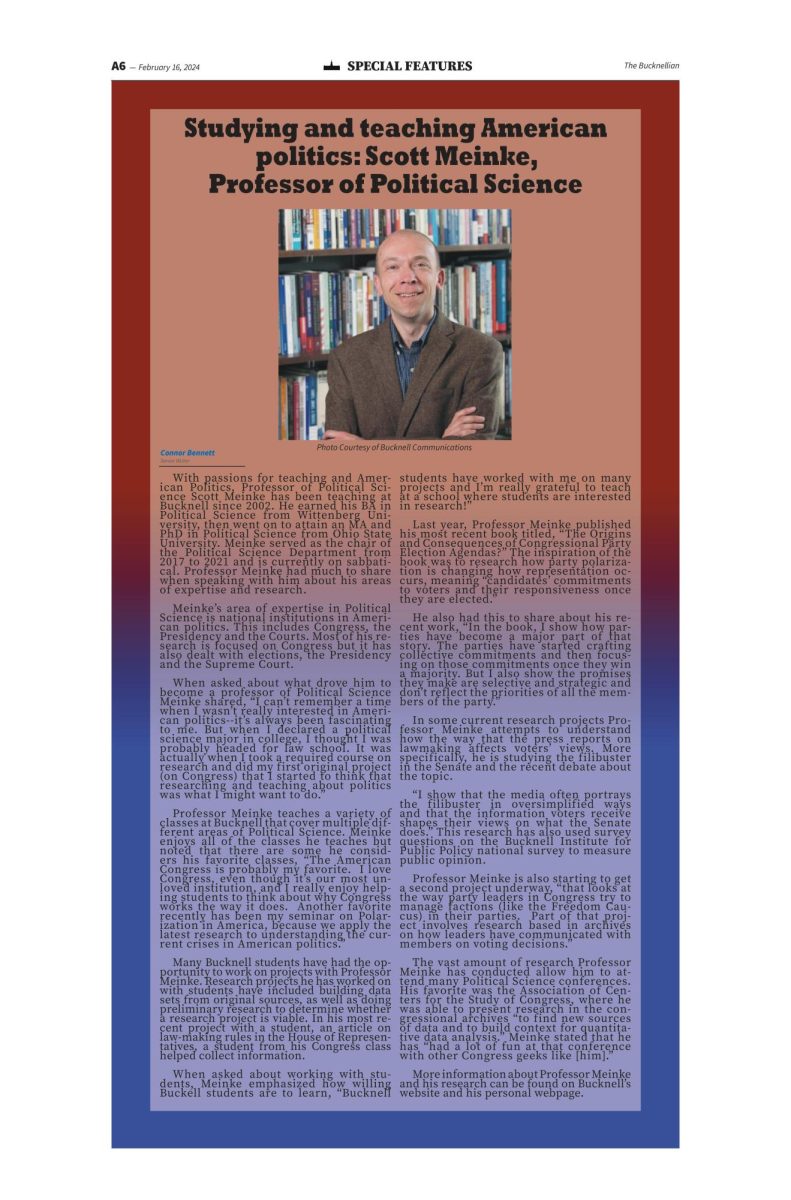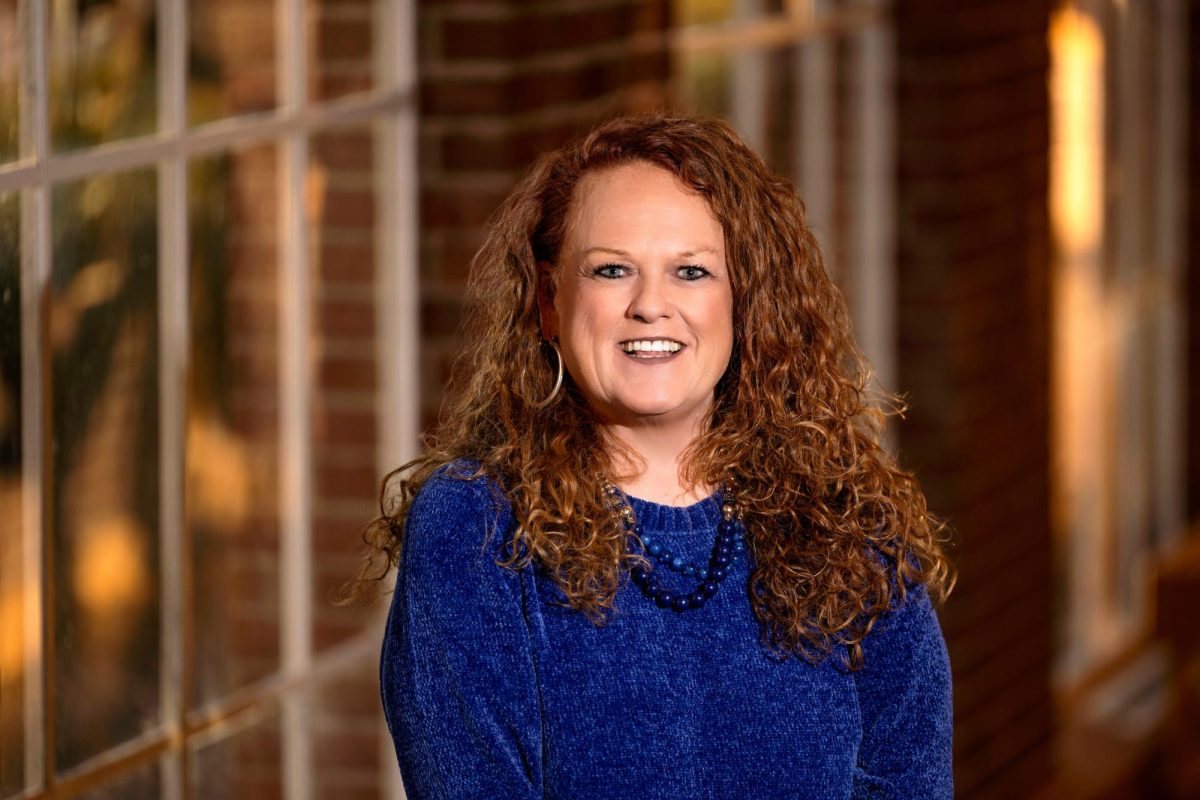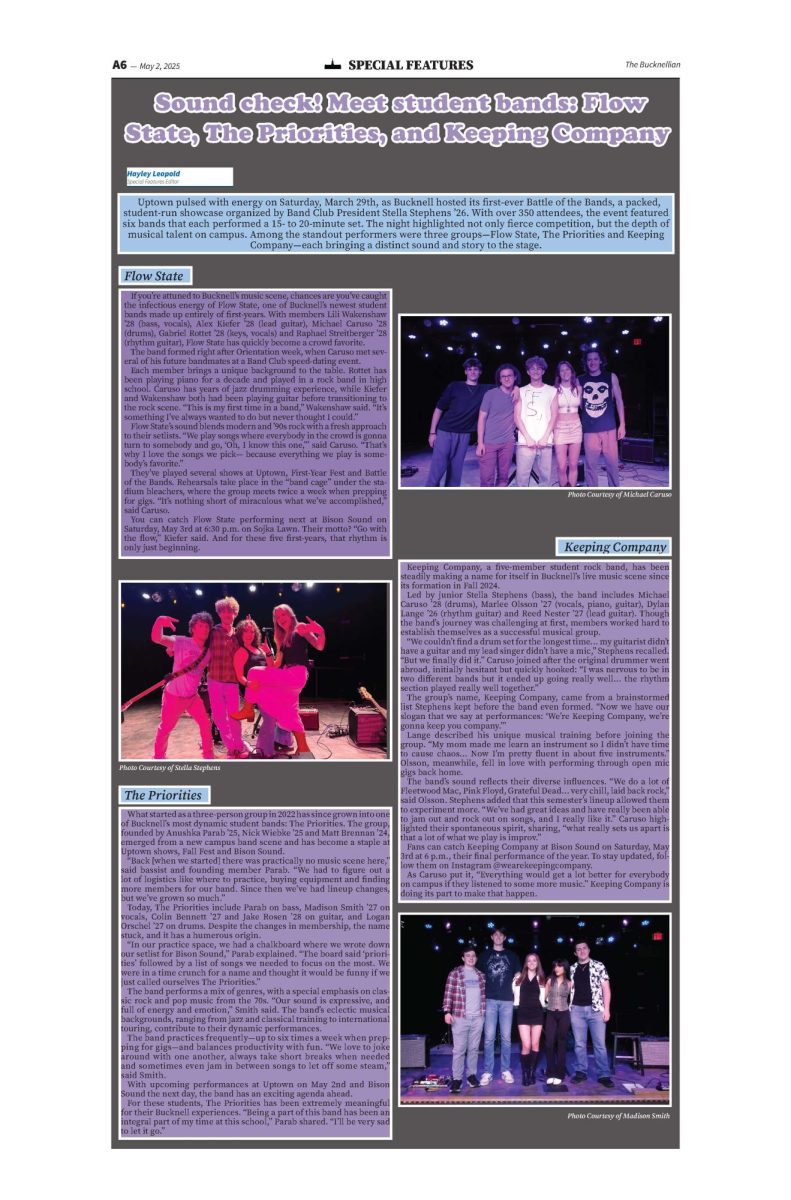With passions for teaching and American Politics, Professor of Political Science Scott Meinke has been teaching at Bucknell since 2002. He earned his BA in Political Science from Wittenberg University, then went on to attain an MA and PhD in Political Science from Ohio State University. Meinke served as the chair of the Political Science Department from 2017 to 2021 and is currently on sabbatical. Professor Meinke had much to share when speaking with him about his areas of expertise and research.
Meinke’s area of expertise in Political Science is national institutions in American politics. This includes Congress, the Presidency and the Courts. Most of his research is focused on Congress but it has also dealt with elections, the Presidency and the Supreme Court.
When asked about what drove him to become a professor of Political Science Meinke shared, “I can’t remember a time when I wasn’t really interested in American politics–it’s always been fascinating to me. But when I declared a political science major in college, I thought I was probably headed for law school. It was actually when I took a required course on research and did my first original project (on Congress) that I started to think that researching and teaching about politics was what I might want to do.”
Professor Meinke teaches a variety of classes at Bucknell that cover multiple different areas of Political Science. Meinke enjoys all of the classes he teaches but noted that there are some he considers his favorite classes, “The American Congress is probably my favorite. I love Congress, even though it’s our most unloved institution, and I really enjoy helping students to think about why Congress works the way it does. Another favorite recently has been my seminar on Polarization in America, because we apply the latest research to understanding the current crises in American politics.”
Many Bucknell students have had the opportunity to work on projects with Professor Meinke. Research projects he has worked on with students have included building data sets from original sources, as well as doing preliminary research to determine whether a research project is viable. In his most recent project with a student, an article on law-making rules in the House of Representatives, a student from his Congress class helped collect information.
When asked about working with students, Meinke emphasized how willing Buckell students are to learn, “Bucknell students have worked with me on many projects and I’m really grateful to teach at a school where students are interested in research!”
Last year, Professor Meinke published his most recent book titled, “The Origins and Consequences of Congressional Party Election Agendas?” The inspiration of the book was to research how party polarization is changing how representation occurs, meaning “candidates’ commitments to voters and their responsiveness once they are elected.”
He also had this to share about his recent work, “In the book, I show how parties have become a major part of that story. The parties have started crafting collective commitments and then focusing on those commitments once they win a majority. But I also show the promises they make are selective and strategic and don’t reflect the priorities of all the members of the party.”
In Some current research projects Professor Meinke attempts to understand how the way that the press reports on lawmaking affects voters’ views. More specifically, he is studying the filibuster in the Senate and the recent debate about the topic.
“I show that the media often portrays the filibuster in oversimplified ways and that the information voters receive shapes their views on what the Senate does.” This research has also used survey questions on the Bucknell Institute for Public Policy national survey to measure public opinion.
Professor Meinke is also starting to get a second project underway, “that looks at the way party leaders in Congress try to manage factions (like the Freedom Caucus) in their parties. Part of that project involves research based in archives on how leaders have communicated with members on voting decisions.”
The vast amount of research Professor Meinke has conducted allow him to attend many Political Science conferences. His favorite was the Association of Centers for the Study of Congress, where he was able to present research in the congressional archives “to find new sources of data and to build context for quantitative data analysis.” Meinke stated that he has “had a lot of fun at that conference with other Congress geeks like [him].”
More information about Professor Meinke and his research can be found on Bucknell’s website and his personal webpage.























